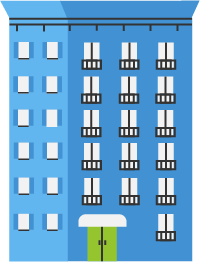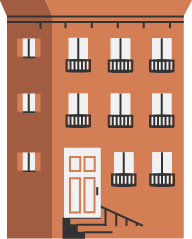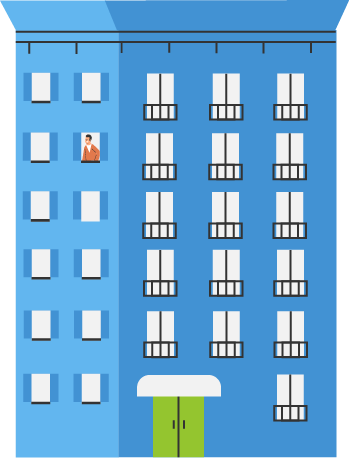
Claims in co-ownership : obligations and recourses of syndicates


When a loss occurs in a condominium, its syndicate generally finds itself in one of the following situations:
- The loss is covered and the syndicate makes a claim.
- The loss is not covered or is only partially covered.
- The amount of damages is less than the deductible.
- The loss is covered, but the syndicate decides not to claim.
What are a syndicate’s obligations and possible recourses?
Obligation to pay for repairs
Should a loss not be covered or the amount of damages be less than the deductible, a syndicate still has an obligation to pay for repairs to the property it is required to insure, such as the private portions of a unit (excluding improvements). The same applies should it choose not to claim the loss from its insurer.
Example: The walls of a condo unit are damaged. The syndicate does not claim the loss. It must still pay for their repair.
Payment of deductibles and damages
If a syndicate does file a claim, it will have to pay its contract deductible. Should the loss not be covered or should the syndicate decide not to claim, it will have to pay the cost of repairs.
No matter the situation, a syndicate has two options to cover the loss:
- Use its self-insurance fund if it is sufficiently endowed; and/or
- Apportion the cost of the deductible or amount of damages among all co-owners based on their share.
Responsibility for damage: syndicate’s recourse
Should a syndicate consider that a co-owner is responsible for the damage, it may claim the amount of the deductible or that of the damages.
However, when a syndicate chooses not to claim a loss covered by its policy, its recourse against a co-owner who is held responsible for the damage is more limited. It will only be entitled to claim the amount of damages that its insurance policy would not have paid had it claimed.
If the damage is caused by a third party, such as a plumber, the syndicate can then exercise any recourse it deems necessary to recover either the deductible amount or the total amount of damages.
Demonstrating responsibility
It is not enough for a loss to occur in a co-owner’s unit for the co-owner to be held responsible for it. The responsibility of a co-owner or third party must be demonstrated in order for the amounts claimed to be reimbursed. If the parties don’t agree on who is responsible, only a court can decide.
A syndicate must always send a formal notice either to the co-owner or third party, indicating the amount claimed and providing justification.
NOTE :
This content is relative to the application of articles 1074.1 and 1074.2 of the Civil Code
claims
damages
condo insurance
co-ownership syndicate


















